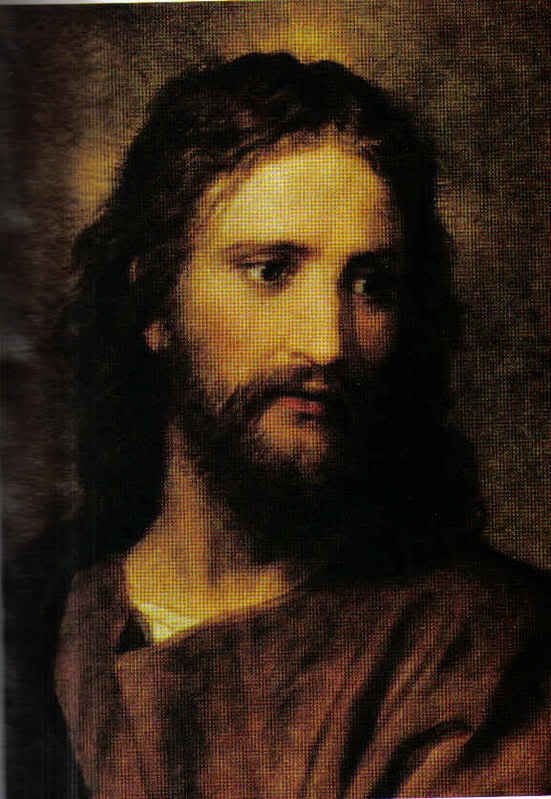"Enter ye in at the strait gate: for wide is the gate, and broad is the way, that leadeth to destruction, and many there be which go in thereat: Because strait is the gate, and narrow is the way, which leadeth unto life, and few there be that find it". Mt 7:13-14
Jesus Christ, toward the end of His Sermon on the Mount, puts forth this famous passage concerning two ways, an oft repeated image within Scripture, and may also be found in the Didache (1:1-6:2). The powerful imagery here is one that depicts a few v.s. many scenario in terms of salvation, or entrance into (eternal) life. This text is often misunderstood as teaching an exclusivity concerning salvation, being for the few, while condemning the masses. And often it's presented as being based on whether or not one has become a believer or not.
In v.14 the Greek word for 'straight' as for the gate which leads to life, is stenos, narrow (from obstacles standing close about): strait- Strongs. And the word translated as 'narrow' is thlibo afflict, narrow, throng, suffer tribulation, trouble -Strong's, 1) to press (as grapes), press hard upon; 2) a compressed way: 2a) narrow straitened, contracted; 3) metaphorically to trouble, afflict, distress -Thayer Greek Definitions. This word is translated as 'throng' in Mk 3:9, that Christ had to enter a ship so the crowds would not throng him, or crowd him; and also is related to the word translated in Lk 8:45 as 'press', which means to crowd (from every side). Anyone whose been in a 'rock concert' crowd, or a mob of people, knows what this feels like; to be in a sea of people, to be pushed about, pressed upon from everyside, and carried beyond your control by the mere force of the crowd.
In this instance, it is by two sides that one is pressed, thronged, or distressed by. The Amplified Version words it this way,
"But the gate is narrow (contracted by pressure) and the way is straitened and compressed that leads away to life, and few are those who find it.." v.14.
I was thinking on this passage the other night, and what came to my mind literally was the idea of a birthing canal. And Christ did relate entrance into the Kingdom of God as a being born of water and of Spirit (Jn 3:5).
What would be the pressures that would throng us on our way to entering life? With what are we contracted, and straightened? Based on an understanding of the Sermon on the Mount (Mt 5-7), it is evident that one side is the dangers of legalism: as the Pharisees who rely on the righteousness which is by the Law (Rom 10:5), who feel that they're righteous because they've not committed adultery, or they've not murdered anyone, when all the while they missed the spirit of the Law which is of the heart as in not lusting, or not hating anyone (Mt 5:27-28; 43-48). On the other side of this straightened way is the dangers of lawlessness (iniquity): this is as those who say, "Lord, Lord", yet do not the things that He says (Mt 7:21-23). These may be those who think that they rely on the righteousness which is by faith (Rom 10:6-10), but who suppose that they can now sin because they're not under the Law, but under grace (Rom 6:1-2, 15).
These are very real dangers, and make for a perilous journey for those willing to travel this narrow and straight way. First, we have to realize what is going on in the paradox of eternal life as presented in New Testament Scripture. As believers, we know that we have eternal life simply by believing on the Lord Jesus Christ, and trusting in what He did for us on the Cross:
"He that believeth on the Son hath everlasting life: and he that believeth not the Son shall not see life; but the wrath of God abideth on him." Jn 3:36
"But these are written, that ye might believe that Jesus is the Christ, the Son of God; and that believing ye might have life through his name." Jn 20:31 (See also Rom 3:21-26; 4:5).
While eternal life is ours upon believing, coming to faith in Christ, eternal life is also portrayed as synonymous with the Kingdom of God, which must be entered into, often with great distress and tribulation. Both sides of this very compressive pathway are brought out in two accounts:
1) The dangers of legalism: The story of the Rich young ruler (see Mt 19:16-30), where a rich young Jewish man supposes that by 'doing' some good thing, he would gain eternal life. But Jesus shows him that if he sought to keep the Commandments of the Torah, that he would have to keep them all perfectly, as says the Scriptures (Rom 10:5; Lev 18:5). He says that with great difficulty that a 'rich man' shall enter the Kingdom of heaven (Mt 19:23). But here, don't just think of monetary riches, but also riches of self-sufficiency, supposing that we're rich in terms of morals, and keeping of the Law: "all these commandments have I kept from my youth up" -v. 20. But when Jesus stated how difficult it would be for such to be saved, the disciples were pretty shocked. But Christ said, "With men this is impossible; but with God all things are possible." Mt 19:26. In other words, we may enter into life, into the Kingdom only by God, not of our own effort which is impossible. Only through God, His grace and His Spirit, can we keep the righteousness (which exceeds that of the Pharisees) as described in the Sermon on the Mount.
2) The dangers of lawlessness: The question someone posed to the Lord, "Then said one unto him, Lord, are there few that be saved? And he said unto them, Strive to enter in at the strait gate: for many, I say unto you, will seek to enter in, and shall not be able." Lk 13:23-24 (see also v.v.25-30). Here, salvation and entering into life, or the Kingdom are synonymous, though we may now have eternal life. Notice in the following verses that those who are thrust out from the Kingdom of God supposed that because they were merely associated with the Lord Jesus, in that they ate with Him, and that He taught in their streets, they would be recognized by Him. But He says to them, "I tell you, I know you not whence ye are; depart from me, all ye workers of iniquity [workers of lawlessness]." v.27b.
Please consider this deeply, especially as both of these texts (Mt 19:16-30 and Lk 13:23-30) end with "the first shall be last, and the last first ". Notice that eternal life is something that we may possess immediately upon our believing on Christ, and being born again (Jn 3:3; 20:31; Eph 2:8-9), but that eternal life is also something we may enter into (Mt 19:17; Jn 3:5). The very fact that there's no cut and dry differentiation between eternal life as we enjoy it now through our faith in Christ, and eternal life as the Kingdom of God, or of heaven which we enter only through much tribulation (Acts 14:22; Mt 19:24) causes this perilous pathway into the Millennium, creating this compressive tension. Let those who wish to see a contradiction do so to their own peril. Let those who wish to choose one side over another side do so to their own peril. But let those who have ears to hear, let them hear~ Yes, we have eternal life, and yes it's a free gift of God's grace through faith, but also, as Peter said,
"Wherefore the rather, brethren, give diligence to make your calling and election sure: for if ye do these things, ye shall never fall: For so an entrance shall be ministered unto you abundantly into the everlasting kingdom of our Lord and Saviour Jesus Christ." 2Pet 1:10-11.
To fully understand, or appreciate the mystery of the Kingdom of God (which is only entered through much tribulation and personal cost) we must first differentiate it from eternal life which is a free gift of unearned grace- as true as that doctrine is, only to bring eternal life and the Kingdom of God back together when we understand this subtle difference, because in effect they're really one truth. It's this which underlines the fact that we will all be judged according to our heart, in light of the Sermon on the Mount. And this precludes us from judging our brother and sister on an ultimate basis, as entrance into life is a condition which is wholly a phenomenon of the heart, and not a mere fulfilling of outward requirements, nor conformity to man's ideas.
May all be blessed with Light.

